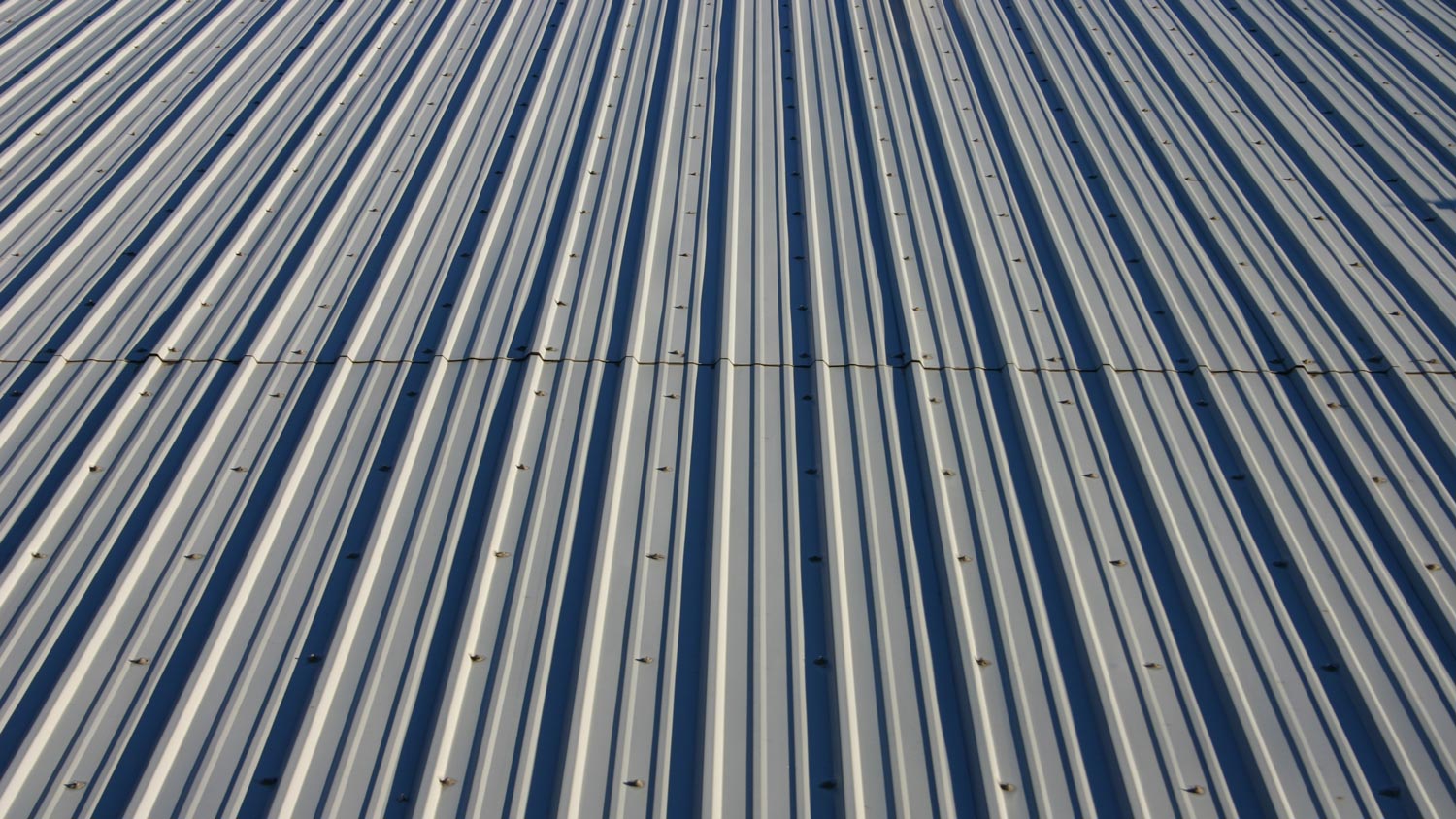Metal Roofing Gauges Sizes: Compare 22, 24, 26, and 29
Get down with the thickness


The most common gauges for metal roofing in the U.S. are 24 and 26 gauge.
Thicker metal roofing (lower gauges) resist denting and stand up to foot traffic better, but they’re more expensive.
Consider the climate in your area, the risk of tree debris falling on your roof, and the up-front cost to choose the best metal roofing gauge for your home.
Most homeowners gearing up to install a metal roof think long and hard about the style of metal roof they want and what metal suits them best, but the thickness often goes unnoticed. Metal roofing gauges make a big difference when it comes to longevity and up-front cost, so it’s another important factor to consider. Let’s discuss why metal roofing gauges matter and how you can make sure you get the right thickness for your home.
Why Does Metal Roof Gauge Matter?

Metal roof gauge matters because thicker metal stands up significantly better to impact, which means it dictates how long your roof will last and look like new. Local metal roof installers also price out the materials based, in part, on the thickness, with 22-gauge metal costing twice as much as 29-gauge metal. Not only does the gauge affect long-term curb appeal, but it also plays a crucial role in your up-front metal roof cost.
What’s the Standard Metal Roof Gauge?
There are two standard metal roofing gauges: 24-gauge and 26-gauge. Most homes have 26-gauge metal roofing, which balances durability with cost nicely. Homeowners in areas that see frequent hail storms or tornadoes and hurricanes that can blow debris onto their roofs more often go with 24-gauge metal for greater protection from dents and punctures.
How to Choose the Right Metal Roof Gauge for Your Home
There’s no one-size-fits-all metal roofing gauge, so you’ll have to take a few things into account to make sure you get the right thickness for your needs before hiring a roofer.
Climate
Climate is one of the most important things to consider when choosing a metal roofing thickness. If you live in a more moderate climate, 26-gauge metal, the thinner of the two standard gauges, should suit you just fine. You can opt for more affordable 29-gauge metal for sheds and outbuildings, where curb appeal isn’t a concern.
For more extreme climates, especially those that see heavy snowfall and hailstorms, a 24-gauge metal roof is the most popular option, as it will stand up to heavy loads and impact better without sustaining damage.
Cost
Thicker metal roofing gauges always cost more per square foot because the materials are more expensive. The table below includes measurements for the different gauges, as well as average costs to help you compare when measuring your roof.
| Metal Gauge | Thickness (In.) | Cost (per Sq. Ft.) |
|---|---|---|
| 29 | 0.0135 | $4–$10 |
| 26 | 0.0179 | $10–$20 |
| 24 | 0.0239 | $15–$25 |
| 22 | 0.0299 | $20–$30 |
Tree Coverage
If you have trees covering all or part of your metal roof, you should consider upgrading to 24-gauge or even 22-gauge metal. Falling tree debris, including acorns and branches, will more easily dent thinner metal and detract from your home’s curb appeal. Going with 22-gauge metal will cost up to twice as much as the standard 26-gauge, but you’ll ensure your roof looks nice for many years to come if you have a lot of tree coverage on your property.
Structural Support
Finally, consider what kind of support your roof will have. Homes will always have roof decking below the roofing material that can easily hold up any of the standard metal gauges. If you’re installing roofing on a structure without roof decking, like a carport or pole barn, upgrade to a thicker gauge to avoid sagging and structural issues over time. Consider upgrading to a thicker gauge if you’re placing furring strips under your metal roof that will leave portions without direct support.
Frequently Asked Questions
24-gauge metal is thicker and will stand up better to impact, so it’s a better option for roofs that will see heavy snow and ice accumulation, hail storms, fallen tree debris, and blown debris. It’s a more expensive option, but it’s worth the added cost for roof longevity in extreme climates. If you live in a more moderate climate and don’t have trees overhanging your roof, 26-gauge metal is suitable and is a more affordable option.
A 26-gauge metal roof panel can span between 4 and 8 feet, depending on a few factors. Local building codes dictate what’s appropriate for panel span, but these are normally based on expected snow loads. Additionally, the type of metal roof you choose will affect the maximum span, as corrugated metal is stronger than flat standing seam panels or a screw down roof and can often span greater distances.





- Roofers
- Metal Roofing
- Roof Repair
- Roof Inspection
- Vinyl Siding Repair Contractors
- Flat Roofing Companies
- Commercial Roofing
- Emergency Roofing Companies
- Leaky Roof Repair
- Metal Roof Repair
- Business Roof Repair
- Flat Roof Repair
- Tile Roof Repair
- Slate Roofers
- Rubber Roofers
- Roofing & Siding
- Metal Roof Installation
- Affordable Roofing
- Roof Sealing
- Attic Ventilation Contractors










